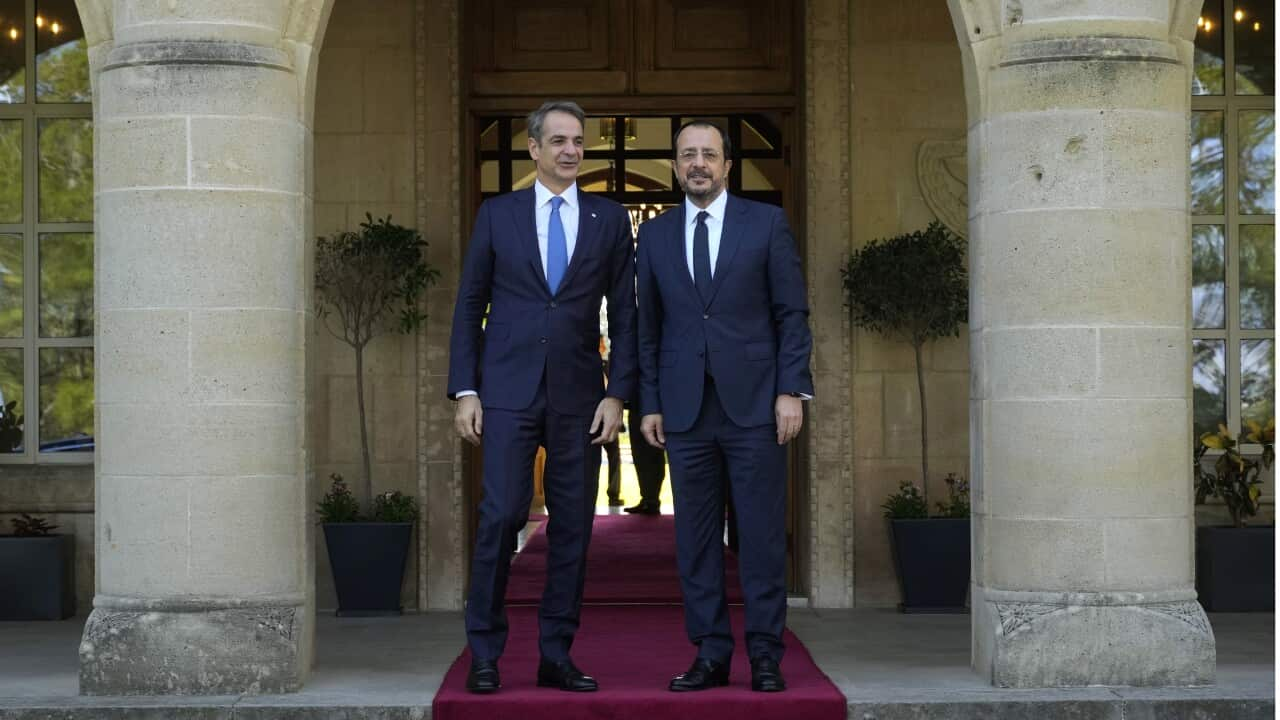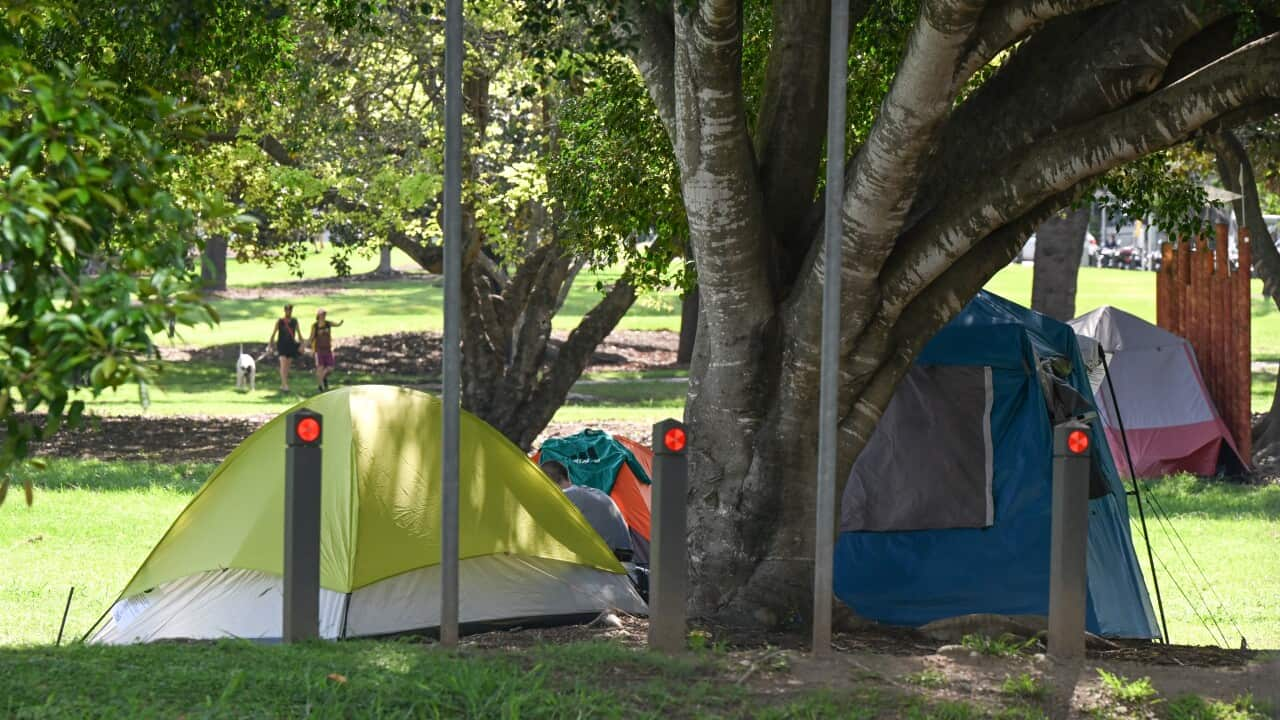«Η ιστορία της Ρόδου δεν είναι μόνο μια εβραϊκή ιστορία, είναι επίσης μια ελληνική ιστορία, αλλά όχι μόνο αυτό, ξεπερνάει τα σύνορα και τελικά γίνεται μια ιστορία οικουμενικής σημασίας», τόνισε στην επισταμένη προσλαλιά του ο Γενικός Πρόξενος της Ελλάδας στην πόλη Ιωάννης Μαλλικούρτης.
Ο Έλληνας διπλωμάτης αναφέρθηκε στα 80 χρόνια που συμπληρώθηκαν φέτος από την ναζιστική εκδίωξη και μεταφορά στο Άουσβιτς των Εβραίων της Ρόδου και άλλων νησιών της Δωδεκανήσου. Όπως σημείωσε, από τους περίπου 1800 επέζησαν μόνο 150.
LISTEN TO

Η εβραϊκή παροικία της Ρόδου 5'.44''
05:59
«Η ιστορία της Ρόδου όμως, δείχνει επίσης ότι ακόμη και στις στιγμές του ακραίου κακού και του σκοταδιού, υπάρχει πάντα μια αχτίδα φωτός και ελπίδας, που τελικά οδηγεί στην επικράτηση του καλού έναντι του κακού», σημείωσε ο κ. Μαλλικούρτης, παραθέτοντας παραδείγματα, κατά τα οποία, πρόσωπα με κίνδυνο της ζωής τους, διέσωσαν όσους Εβραίους μπορούσαν.
Ο Γενικός Πρόξενος μίλησε για την Πλατεία Μαρτύρων Εβραίων της Ρόδου και το εκεί Μνημείο Ολοκαυτώματος που στήθηκε το 2002. Ανέγνωσε επίσης μήνυμα της σημερινής προέδρου της Εβραϊκής Κοινότητας Ρόδου, Claudia Resti. Η κοινότητα αριθμεί σήμερα περί τα 40 μέλη ενώ στην Ρόδο λειτουργεί Εβραϊκό Μουσείο.
Δυο νέοι, αρραβωνιασμένοι, αντάμωσαν μετά από σχεδόν μισό αιώνα
Κεντρικό θέμα της εκδήλωσης ήταν το θεατρικό δρώμενο που έγραψε ο γνωστός παράγοντας της εβραϊκής παροικίας Vic Alhadeff και είχε να κάνει με την ιστορία του πατέρα του, ο οποίος πρόλαβε και έφυγε από την Ρόδο, το 1938, προτού οι Γερμανοί στείλουν τους ομοεθνείς του για εξόντωση το 1944 στα στρατόπεδα συγκέντρωσης.

Ο συγγραφέας του έργου Vic Alhadeff κατά την προσφώνησή του. Credit: Benjamin Ryan- Emanuel Synagogue
Ανάμεσα στους εκτοπισμένους ήταν και η αρραβωνιαστικιά του Μπέκυ για την οποία είχε πληροφορηθεί ότι θανατώθηκε.
Εκείνη όμως ήταν από τους λίγους που διασώθηκαν και μετά τον πόλεμο δημιούργησε οικογένεια στο Βέλγιο, όπως και εκείνος στην Ροδεσία.
Κατά ένα περίεργο παιχνίδι της μοίρας, ο πατέρας του Vic Alhadeff, Salvatore, έμαθε ότι η πρώην αρραβωνιαστικιά του ήταν ζωντανή και οι δυο τους ξανάσμιξαν έστω και για λίγο μετά από περίπου 45 χρόνια.
Μέσα από το κουβάρι της συγκινητικής ιστορίας τους, ξετυλίγονται οι καημοί, οι πόθοι, των νέων ανθρώπων, οι διαφορετικές προσεγγίσεις τους για το κακό που έρχονταν λίγο καιρό πριν ξεσπάσει ο Β’ παγκόσμιος πόλεμος και εν τέλει οι συγκλονιστικές ιστορίες όσων μπόρεσαν να σταθούν ξανά στα πόδια τους και να συνεχίσουν, παρά τις αντιξοότητες, τη ζωή τους.
Ο τίτλος του έργου του ήταν «Torn Apart by War», σε ελεύθερη απόδοση «Διαλυμένοι από τον πόλεμο». Παρουσιάστηκε σε σκηνοθεσία της Dr Liz Hovey και σε ερμηνεία των Geoff Sirmai, Joanna Weinberg, Tony Sloman και της ίδιας της Hovey. Το αριστούργημα των Θεοδωράκη-Καμπανέλλη, «τί ωραία που είναι η αγάπη μου», απέδωσε έξοχα η Sarit Michael.

Η Sarit Michael που ερμήνευσ εέξοχα το '¨Ασμα Ασμάτων" των Θεοδωράκη-Καμπανέλλη. Credit: Benjamin Ryan- Emanuel Synagogue
Στο τέλος της παράστασης ο κ. Alhadeff εξέφρασε τις θερμές ευχαριστίες του σε όλους όσοι συνέβαλαν στην υλοποίηση της εκδήλωσης και απάντησε σε ερωτήσεις του κοινού.
Νωρίτερα δε, στην πρώτη του ομιλία, αναφέρθηκε εκτενώς στην ιστορία των Εβραίων της Ρόδου (αλλά και γενικότερα της Ελλάδας) σημειώνοντας ότι το στίγμα της οικογένειάς του στο νησί φαίνεται και από το γεγονός ότι υπάρχει οδός Alhadeff και πάρκο Alhadeff.
Η εκδήλωση πραγματοποιήθηκε στις εγκαταστάσεις της Συναγωγής «Emanuel Synagogue», στο προάστειο Woollahra. Μεταξύ των παρισταμένων ήταν στελέχη του Γενικού Προξενείου, προξενικοί εκπρόσωποι άλλων χωρών, αρκετοί παράγοντες από την ελληνική παροικία του Σύδνεϋ και μέλη της εβραϊκής παροικίας.
Παρατίθεται εδώ, ολόκληρη η ομιλία του κ. Μαλλικούρτη, στα Αγγλικά:
Remembering Rhodes: Torn Apart by War
Emanuel Synagogue, 15 September 2024
Opening remarks by the Consul General of Greece in Sydney,
Mr Ioannis Mallikourtis
Good evening. Before I start with my brief remarks, allow me to read out a message which was sent to us for today’s event by the President of the Jewish Community of Rhodes, Mrs :
“Throughout Jewish history, we carry with us the traumas of our people’s past—the broken lives, the unthinkable suffering, and the tragic deaths. These are not merely stories of the past; they are the echoes of our ancestors, alive within us, guiding us as we continue our journey toward a future filled with hope and life. We refuse to let their deaths be in vain, and through our remembrance, their legacies endure.

Ο Γενικός Πρόξενος της Ελλάδας, Ιωάννης Μαλλικούρτης κατά την προσφώνησή του. Credit: Benjamin Ryan- Emanuel Synagogue
On July 23, 1944, more than 2,000 Jews from the islands of Rhodes and Kos were deported to Auschwitz-Birkenau concentration camps, where they were annihilated. On that day, Jewish life on the island of Rhodes—the “Island of Roses”—was extinguished. Entire families were wiped out, their lives cruelly cut short, leaving behind no graves, no remnants, and often no descendants to remember them.
Today, we stand here to mourn our murdered fathers and forefathers. But how does one mourn those who left behind no one to mourn them? Who grieves for the hundreds of families annihilated without a single trace, without even a piece of earth to call their resting place?
This is the question we must answer on their Memorial Day: How do we honor those who were denied the dignity of a proper funeral, whose names were almost lost to history? Many left behind no living relatives to remember and commemorate them; they have no tombstones to mark their existence.
It is our duty to ensure that they are not forgotten. We promise, with boundless love and unwavering commitment, that we will keep their memories alive. We will commemorate them, speak their names, and tell their stories. Their memory will remain immortal, and our mourning for them will be eternal.
We carry their legacy within us, a reminder of the resilience of the Jewish spirit. As we continue forward, we hold fast to the promise that their lives will never be erased from history, and that their spirits will continue to live on through our remembrance.”
In January 2022, during the International Holocaust Remembrance Day, the President of the Hellenic Republic Mrs Katerina Sakellaropoulou stated that “The Holocaust concerns us all, not just the Jewish people. It reveals the naked face of evil and constantly puts our moral conscience to the test.”

Ο Γνεικός Πρόξενος Ιωάννης Μαλλικούρτης με τον συγγραφέα του έργου Vic Alhadeff. Credit: Benjamin Ryan- Emanuel Synagogue
Distinguished guests, ladies and gentlemen, this is why we are here today. The story of the Rhodes is not just a Jewish story, it is also a Greek story, but not just that, it transcends borders, ultimately becoming a story of ecumenical relevance. This year we commemorate the history of the Jews of Rhodes, as we mark 80 years since the Nazi expulsion and transport to Auschwitz. Eighty years from the tragic events of 23 July 1944, when the occupying Nazi authorities rounded up 1,673 Jews of Rhodes in the Martyrs’ Square in the Jewish quarter and then took them to the port of the city of Rhodes, where they were loaded onto cargo ships, like animals, that sailed towards Piraeus. In Athens they were taken to the Haidari concentration camp and then, during August, they were sent to Auschwitz, where the vast majority perished, given that only 150 survived.
This extraordinary community has proven inspirationally vibrant and resilient. Scattered throughout the world, from Harare and Johannesburg to Los Angeles, Buenos Aires and Sydney, the Rhodeslis remain deeply committed to their Sephardic traditions. One of them, whom I proudly call my friend, Vic Alhadeff, has written a play “Torn Apart by War” the reading of which will soon be read out by a talented cast. This play delves into a specific chapter of his family’s history, but I will not say more, I do not like spoilers. I will just note that the Alhadeff family, mostly bankers in their profession, was crucial in the economic development of the island. In 1928 the Compagnia Agricola Industriale Rodi was founded by his ancestors which produced the famous champagne CAIR, keeping the island’s viticulture alive and thriving.
Allow me also to particularly thank the President and Board of Emanuel Synagogue for co-organizing today’s event and for hosting us in their premises. My thanks also to my colleague at the Consulate-General, Mrs Anastasia Christofilopoulou for putting all the pieces together as regards our presence today.
Dear friends, in my brief remarks today, I would like to concentrate on certain historical episodes of the tragic story of the Rhodeslis, which I think have a didactic character and may help us to draw some conclusions.
In June and July 1944, at the eastern flank of the Mediterranean for the first time in the history of the Holocaust, instead of trains, ships were used by the Nazis to deport the Jews. This is the time when we are approaching the end of World War II, when it is clear that the Nazis are losing. Yet, they show incredible or rather horrifying commitment to rid Europe of the last Jewish populations. The boats leave Rhodes with 1,673 souls, they stop in Kos and another 98 Jews are loaded. What is perhaps less known is that one of the boats stops at Leros to take one Jew who lived on the island, one single Jew. If this is not an example of the exterminating obsession of a heinous regime, then what is?
The story of Rhodes though also demonstrates that even in the moments of extreme evil and darkness, there is always a glimmer of light and hope, ultimately leading to the prevalence of good over evil. As I recently found out from my research on the Jews of Rhodes, in the beginning of 1944, when the elders of the Jewish community realized that things were deteriorating, they made a decision to secret the old Torahs, which their ancestors had brought from Spain centuries earlier. So, they arranged a private meeting with the Grand Mufti of Rhodes, to whom they gave the Torah scrolls to hide them for safekeeping. The Chief Rabbi thanked him but voiced a doubt whether that measure would keep them safe. The Grand Mufti smiled and answered with a rhetorical question. He asked “If the Rabbi were a Nazi, looking for a Jewish Torah, would he ever think of looking for it in a Muslim Mosque?”. The Torahs were saved and today they are exhibited in the Jewish Museum of Rhodes.
There are also other stories of hope, most notably the actions of the Turkish Consul General in Rhodes, Selahattin Ulkumen- in his early thirties then- who managed to save 42 Jews by claiming they were Turkish citizens. The young Consul General paid a high price for his bravery. Two weeks later, in retaliation for his assistance to Jews of Rhodes the German Commander ordered two Luftwaffe fighter aircraft to bomb the Turkish Consulate General, killing two members of its staff and severely wounding Ulkumen’s wife, who was able to give birth to the couple’s son, before succumbing to her injuries.
And then, we have the case of the first Mayor of a free Rhodes, Gabriel Charitos, who is elected in office in 1946 and in memory of his fellow Jewish Rhodians, he names the central square of “La Juderia” to “Square of Jewish Martyrs”, the unanimous resolution of the then City Council of Rhodes being the first official recognition of the Holocaust on behalf of a Greek authority.
In 2002 as a result of several years of planning by the Greek Government in collaboration with the Jewish Community of Rhodes, a Holocaust Memorial was erected in the “Square of the Martyred Jews”. The dedication on a six-sided black granite column is in memory of the World War Two victims from Rhodes and Kos. Each of the sides is inscribed in a different language; Greek, Hebrew, English, French, Italian and Ladino. The memorial has the words engraved: “IN ETERNAL MEMORY OF THE 1604 JEWISH MARTYRS OF RHODES AND KOS WHO WERE MURDERED IN NAZI DEATH CAMPS. JULY 23, 1944”.
Today, if I am not mistaken, there are about 40 Jews living on the island, there is one functioning synagogue and a Jewish Museum, which has kindly provided photographic material for today’s event. I wholeheartedly thank the director Ms Carmen Cohen for all her support.
LISTEN TO

Οι Εβραίοι της Ρόδου και πως ο πατέρας μου αντάμωσε ξανά την αρραβωνιαστικιά του μετά από δεκαετίες
SBS Greek
09/09/202419:59
Allow me, in closing, to very briefly share my thoughts on the history of the Holocaust in Greece. In recent years, Greeks have been gradually acquainted with the stories of their Jewish compatriots of Thessaloniki, the largest Jewish community in south-eastern Europe which was exterminated in the Nazi concentration camps. In public discourse, we also hear about the Romaniote Jews of Ioannina, an indigenous Greek-speaking Jewish community which first settled in the south Balkans in the first centuries A.D. and which unfortunately also perished in WW2. We learn about the stories of individual Greek Jews, such as Mordechai Frizis, the first high-ranking Greek officer who was killed in the Albanian mountains in the war against Fascist Italy in December 1940. We also learn of the critical role played by the Orthodox Church in saving Jewish lives in Athens, Zakynthos and Volos during the Nazi occupation of Greece, all three religious leaders of these cities being listed among the 364 Greeks as righteous amongst nations at Yad Vashem.
Today, we take pride in the fact that the construction of a Holocaust Museum in Thessaloniki is underway. We are also devising a National Strategy to combat antisemitism. This progress in raising awareness, in making people conscious of the story of the Greek Jews, has also coincided with the unprecedented strengthening of relations between Greece and Israel.
This is also part of my mandate here in Sydney, as Consul General of Greece. To be informed and inform, and bring to the light this story, which is a very important chapter in Greek history. Allow me at this point to also acknowledge the contribution of SBS Greek and its Director, Mr Themis Kallos, in making this story known to a Greek speaking audience here in Australia.
This story is also important for the Jewish community here in Sydney. In this regard, I would like to commend the Jewish Museum of Sydney for recognizing in recent years the need to also educate the community on the history of the Sephardic Jews of Greece and the Balkans. Given the demographics of the community and the fact that most of them are descendants from countries of Eastern Europe- I would like to also acknowledge the presence of the Hungarian and Czech Consuls this evening- the story of the Greek Jews was less known. I am delighted that this is gradually changing and that the Greek Consulate, with a series of events it has organized over the years, has contributed to this development. Raising awareness on stories of the Holocaust which are less known to the wider public are crucial for the new generations, be it here in Australia, Greece or elsewhere. After all, the promise “never again” will be fulfilled only through the education of the new generations.
Thank you for your attention.
Άρθρο της Οντέτ Βαρών-Βασάρ για τον εκτοπισμό των Εβραίων της Ρόδου και της Κω, 17 Ιουλίου 2023. Κεντρικό Ισραηλιτικό Συμβούλιο Ελλάδος.







